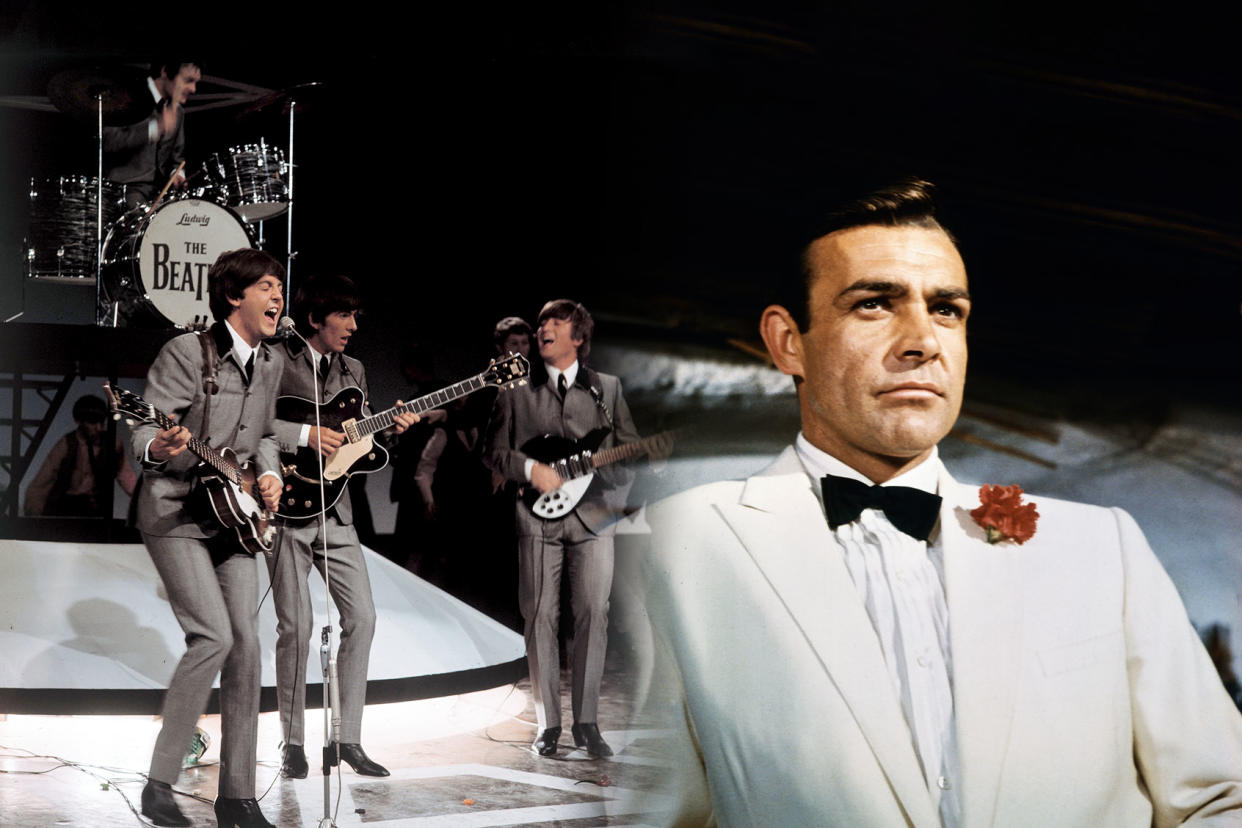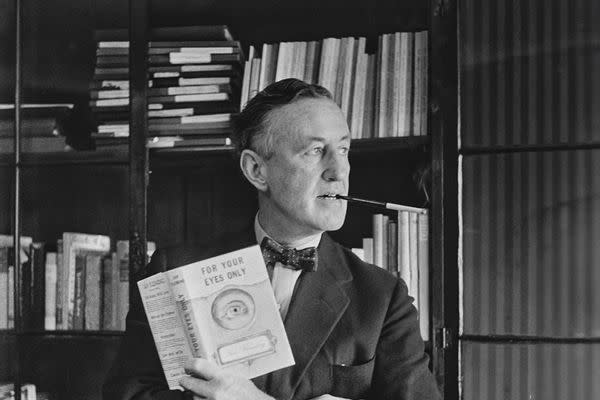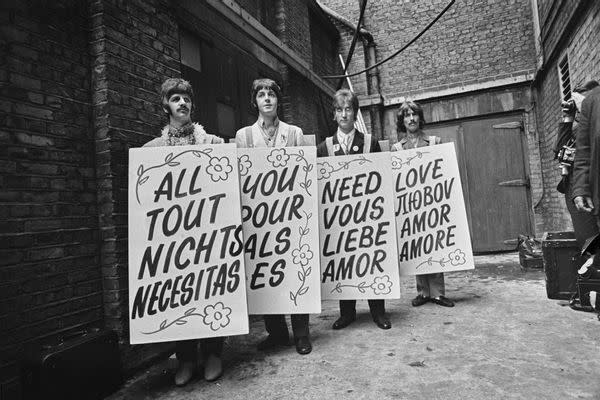"All You Need Is Love": Rare new Beatles and James Bond insights into creation of the art we adore

- Oops!Something went wrong.Please try again later.
- Oops!Something went wrong.Please try again later.
In their heyday, the Beatles and Ian Fleming’s James Bond novels marked the United Kingdom’s greatest exports. In 1964 alone, the Fab Four sold 25 million records in the United States. Fleming died that same year, having already sold more than 30 million books. As with the Beatles, Fleming proved to be the darling of the American marketplace. In 1961, President John F. Kennedy cited "From Russia with Love" as one of his favorite books, and Fleming subsequently enjoyed a massive uptick in U.S. sales.
In the ensuing decades, our fascination with Bond and the Beatles has continued to flower. Bond, of course, is the protagonist in a multibillion-dollar movie franchise. Fans of the international spy will relish Nicholas Shakespeare’s "Ian Fleming: The Complete Man." While Fleming has been the subject of several biographies, they seem slight in comparison with Shakespeare’s study, which has the depth and texture typically associated with literary fiction.
In Shakespeare’s hands, Fleming’s world comes vividly to life. Of particular value are Shakespeare’s forensic recounting of Fleming’s war years, when he was involved in many of Great Britain’s most sensitive special operations. Fleming’s wartime experiences no doubt impinged upon his later characterization of 007, the spy who would transform the author into a household name.

Shakespeare also makes vital inroads into Fleming’s personal background and its interconnections with Bond’s well-known penchant for romantic sport. In particular, Shakespeare highlights Fleming’s tortured attachment (and one-time engagement) with Monique Panchaud de Bottens. Fleming severed his relationship with Monique after his mother threatened to disinherit him, an act that would reverberate across his lifetime in pangs of sadness and despair. In his research, Shakespeare sagely quotes Fleming’s friend Ernest Cuneo, who saw the genesis of Bond’s womanizing character in Fleming’s ill-fated relationship with Monique. “It seems to me,” said Cuneo, “that James Bond embodies Ian’s revenge for the terrible hurt; Bond tumbles them into bed, leaves them with the memory of a savage ravishment, which, ye gods, leaves them pining for Bond and forever bereft without him.”
And then there’s the Fabs. While Beatles-related books now number in the thousands, one of the most notorious — save for Albert Goldman’s "The Lives of John Lennon" (1988) — arrived in the form of "The Love You Make: An Insider’s Story of the Beatles" (1983). Authored by Beatles insider Peter Brown and journalist Steven Gaines, the salacious book notched a bestseller during an era in which new information about the band was scarce. Brown and Gaines landed a bestseller in "The Love You Make," largely due to the book’s salacious and prurient contents.
The former Beatles considered the book to be an unforgivable betrayal on Brown’s part, especially given his once vaunted place in their inner circle. Paul McCartney was particularly incensed, excoriating the book as "The Muck You Rake" and famously burning his copy as wife Linda memorialized its destruction on film. Although critics objected to its seamier aspects, including speculation about John Lennon and manager Brian Epstein’s ostensible affair during a Spanish holiday, the book devoted precious little space to the music-making at the heart of the Beatles’ achievement and enduring popularity.

Which brings us to Brown and Gaines’ "All You Need Is Love: The Beatles in Their Own Words." Subtitled as "Unpublished, Unvarnished, and Told by the Beatles and Their Inner Circle," Brown and Gaines’ latest book makes a substantial contribution to the historical record. While the passage of four decades makes "The Love You Make" seem positively dated, "All You Need Is Love" affords readers with a feast of new information.
Comprised of transcripts from the interviews that Brown and Gaines conducted in support of their work on "The Love You Make," "All You Need Is Love" presents the band members and their circle in rare instances of unmediated frankness. Crucially, the majority of the interviews were carried out prior to John Lennon’s senseless murder in December 1980. Hence, the bandmates reveal a sense of candor that would become increasingly guarded in the wake of his untimely death. Where "The Love You Make" felt unsavory in some readers’ experiences, "All You Need Is Love" proves itself to be an invaluable historical resource, presenting the Beatles entirely in their own words in a series of moments in which an unknown future was still splayed out before them, those precious last instances in which all four Fabs still safely walked the earth.

